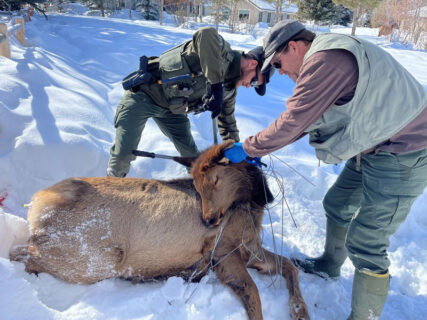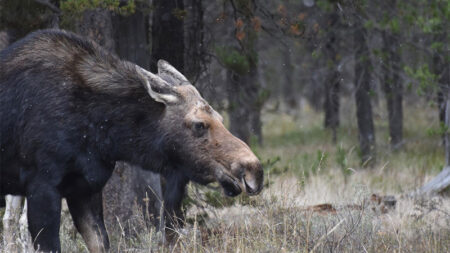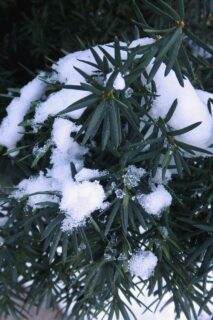Two elk calves found dead after eating ornamental yew in Ketchum
Yew continues to be found in Blaine County despite ordinances that prohibit the plant in many parts of the county.
Despite a 2016 Blaine County ordinance restricting the planting of noxious plants, including exotic yew, two elk calves were found dead on Friday, February 3, 2023, after eating the toxic plant in the Warm Springs area of Ketchum.
Fish and Game conservation officers who investigated the report of dead elk confirmed the presence of yew in the elk but have yet to find the specific location of the plant or plants that were ingested.
Several plant species are toxic to wildlife and pets, especially those in the yew family.
Yew is an evergreen tree commonly used in ornamental plantings or landscaping that contains highly poisonous chemicals known as alkaloid taxines. Two species of yew, Japanese and European, are particularly toxic.
Residents need to inspect the landscaping around their homes and remove all yew plants in an effort to keep wildlife and pets safe, especially during winter months when wildlife moves down into historic winter range, now occupied by community neighborhoods and private residences.
Homeowners should completely remove any yew from their yards. If removal is not possible until spring, the bushes should be securely fenced so that wildlife cannot get access to the plants, or the plants should be tightly wrapped with burlap.
According to Regional Wildlife Manager Mike McDonald, homeowners, no matter where they live, need to be aware of the types of vegetation they purchase and plant on their properties. “We continue to see the end result of wildlife dying from eating ornamental yew that is planted around homes. It’s surprising how small an amount of yew it takes to kill an elk, deer or moose, which are all species that residents can see throughout many Idaho communities.”



